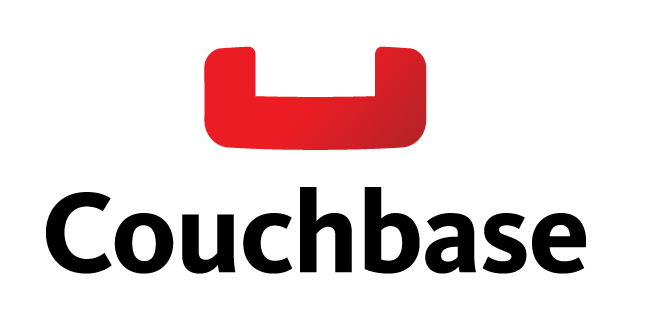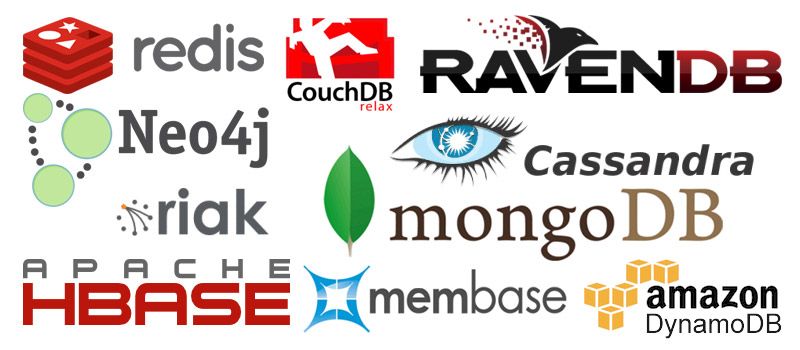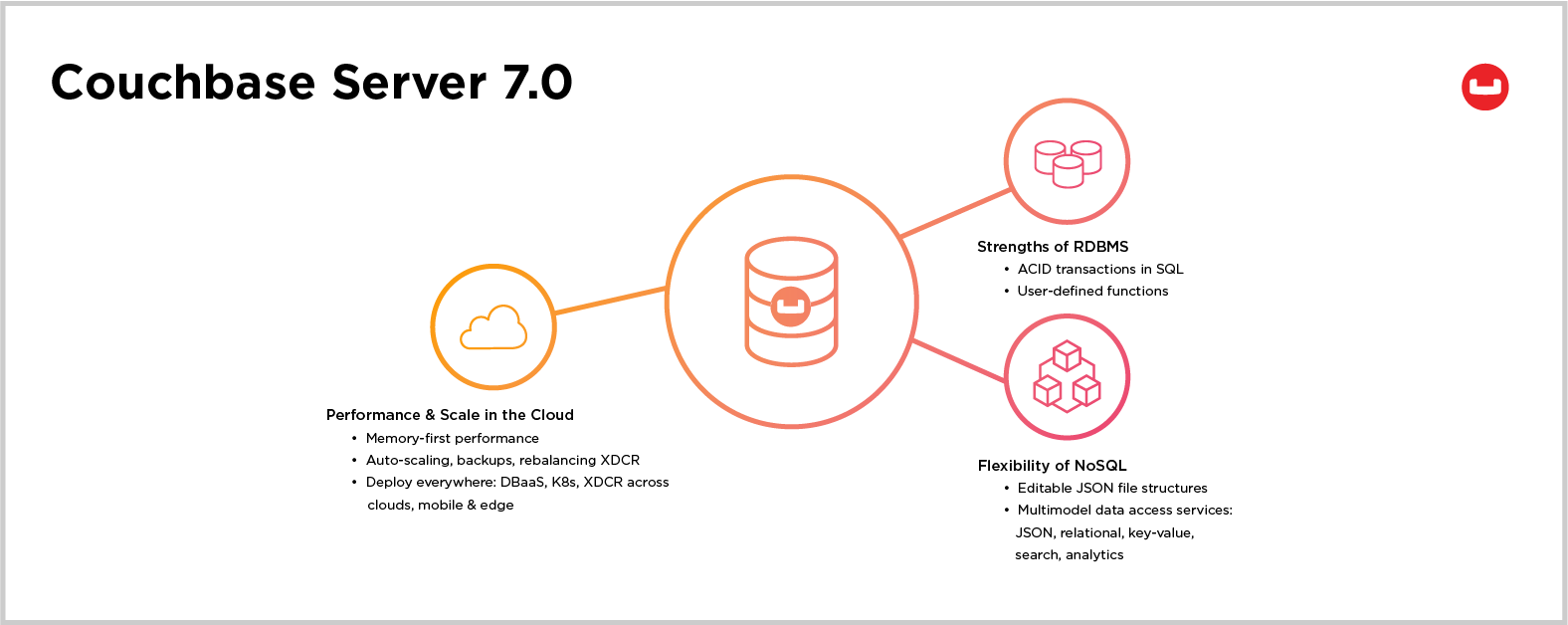Couchbase: Setup Distributed Document-oriented NoSQL Database on Kubernetes Cluster - Part 1
Couchbase is a distributed, document-oriented NoSQL database known for its high performance, scalability, and flexibility.

Introduction
NoSQL, short for "Not only SQL", is a type of database designed to handle unstructured data. Unlike traditional relational databases (RDBMS), NoSQL databases can manage data in various formats like key-value, document, column-family, and graph. This flexibility makes NoSQL databases a great choice for modern data-heavy applications and big data analytics.

How is it different from RDBMS?
Let's compare NoSQL databases with traditional RDBMS to see how they stack up:
- Data Structure and Management: RDBMS uses tables with a fixed schema to store data, while NoSQL databases can store data in various formats without a predefined schema. For instance, Couchbase is a document-oriented database, storing data in JSON format, which allows for greater flexibility.
- Scalability and Performance: RDBMS is more suitable for vertical scaling (adding resources to a single server), while NoSQL databases are designed for horizontal scaling (adding more servers). This makes NoSQL databases like Couchbase a better fit for handling large amounts of data across multiple servers.
- Application Suitability: RDBMS is great for structured data with well-defined relationships and ACID (Atomicity, Consistency, Isolation, Durability) guarantees. NoSQL databases, on the other hand, excel in handling unstructured or semi-structured data and can be more performant in certain scenarios, like when handling high write loads.
NoSQL vs RDBMS
| Feature | NoSQL Databases | RDBMS |
|---|---|---|
| Data Model | Key-value, document, column-family, graph | Relational tables |
| Schema | Flexible | Fixed |
| Data Storage | Varies based on data model | Tables |
| Query Language | Varies based on database | SQL |
| Scaling | Horizontal | Vertical |
| Consistency Model | Configurable (Tunable) | Strong (ACID) |
| Transactions | Varies based on database | Supported (ACID) |
| Data Replication | Varies based on database | Supported |
| Indexing | Varies based on database | Supported |
Introducing Couchbase
Couchbase is a distributed, document-oriented NoSQL database known for its high performance, scalability, and flexibility. It's perfect for large-scale applications that require low latency and real-time data processing. Some core features include a memory-first architecture, N1QL query language, and Cross Datacenter Replication (XDCR).

Couchbase has several standout features that make it a powerful and versatile NoSQL database. In this section, we'll delve deeper into these killer features and explain how they benefit users:
N1QL Query Language
N1QL (pronounced "nickel") is a comprehensive SQL-like query language specifically designed for JSON data. This powerful feature allows developers to query and manipulate data in Couchbase using familiar SQL syntax, making it easy to transition from a traditional RDBMS background.
Expressive and Flexible
N1QL is highly expressive, supporting a wide range of query operations such as filtering, aggregation, joins, and subqueries. This flexibility enables developers to work with complex data structures and relationships, unlocking the full potential of their data.
Indexing and Performance
Couchbase provides various indexing options to optimize N1QL queries. Global Secondary Indexes (GSI), for example, can be created on any document attribute, significantly improving query performance. Additionally, N1QL supports index partitioning and replication, ensuring both high availability and fault tolerance.
Memory-First Architecture
Couchbase's memory-first architecture stores data in memory before committing it to disk. This approach provides low-latency and high-throughput operations, making Couchbase an excellent choice for applications requiring real-time data processing.
Data Durability
While prioritizing memory for fast data access, Couchbase ensures data durability by asynchronously writing data to disk. Users can configure durability levels based on their specific needs, balancing performance and consistency requirements.
Data Eviction and Expiration
Couchbase offers flexible data eviction policies, such as value-only or full eviction, to manage memory usage. Additionally, documents can be assigned expiration times (TTL), allowing Couchbase to automatically remove expired data from memory and disk.
Cross Datacenter Replication (XDCR)
Couchbase's XDCR feature enables data replication across multiple data centers or cloud regions. This functionality ensures high availability, disaster recovery, and improved read performance for users distributed across different geographic locations.
Flexible Topologies
XDCR supports various replication topologies, such as unidirectional, bidirectional, and multi-hop, catering to different use cases and requirements. It also allows for filtering based on document keys or expressions, giving users fine-grained control over the replication process.
Conflict Resolution
Couchbase automatically resolves conflicts that may arise during the replication process. Users can choose between two conflict resolution modes: Timestamp-based (default) or Sequence Number-based. Custom conflict resolution can also be implemented using Couchbase Eventing.
How does Couchbase compare to other NoSQL Databases?
Here's a comparison table that highlights the differences between popular NoSQL databases, including Couchbase, Cassandra, and MongoDB:
Couchbase vs Other Solutions
| Feature | Couchbase | Cassandra | MongoDB |
|---|---|---|---|
| Data Model | JSON documents | Wide-column store | BSON documents |
| Schema | Flexible | Flexible | Flexible |
| Data Storage | Documents | Columns | Documents |
| Query Language | N1QL | CQL | MongoDB Query Language (MQL) |
| Scaling | Horizontal | Horizontal | Horizontal |
| Consistency Model | Configurable (Tunable) | Eventual | Configurable (Tunable) |
| Transactions | Supported (ACID) | Limited | Supported (ACID) |
| Data Replication | XDCR | Supported | Supported |
| Indexing | Supported | Supported | Supported |
| Memory-First Architecture | Yes | No | No |
| Cross Datacenter Replication | Yes | Yes | Yes |
| Full-Text Search | Yes | No (via third-party) | Yes (via Atlas Full-Text Search) |
| Geospatial Querying | Yes | Yes (with limitations) | Yes |
Couchbase on Kubernetes
Couchbase supports Kubernetes, which is a popular container orchestration platform. Couchbase has developed a Kubernetes Operator that simplifies deploying, managing, and scaling Couchbase clusters on Kubernetes.
The Couchbase Operator automates various tasks such as configuration management, scaling, and rolling upgrades, making it easier for developers and administrators to maintain their Couchbase infrastructure. By using the Couchbase Operator, you can manage your Couchbase cluster using familiar Kubernetes tools and commands.
Running Couchbase on Kubernetes provides several advantages, including:
- Improved Scalability: Kubernetes makes it easy to scale Couchbase clusters horizontally by adding or removing nodes based on demand.
- Enhanced Resilience: Kubernetes automatically handles failures, ensuring that your Couchbase cluster remains up and running even in the event of node failures or other issues.
- Simplified Management: The Couchbase Operator allows you to manage your Couchbase cluster using familiar Kubernetes tools, making it easier to deploy, monitor, and maintain your database infrastructure.
About 8grams
We are a small DevOps Consulting Firm that has a mission to empower businesses with modern DevOps practices and technologies, enabling them to achieve digital transformation, improve efficiency, and drive growth.
Ready to transform your IT Operations and Software Development processes? Let's join forces and create innovative solutions that drive your business forward.
Subscribe to our newsletter for cutting-edge DevOps practices, tips, and insights delivered straight to your inbox!
